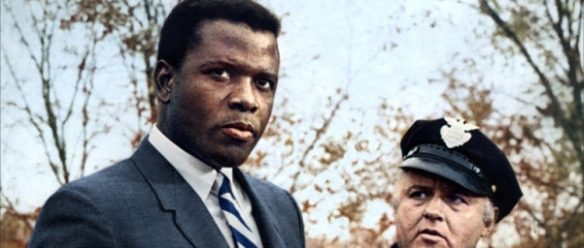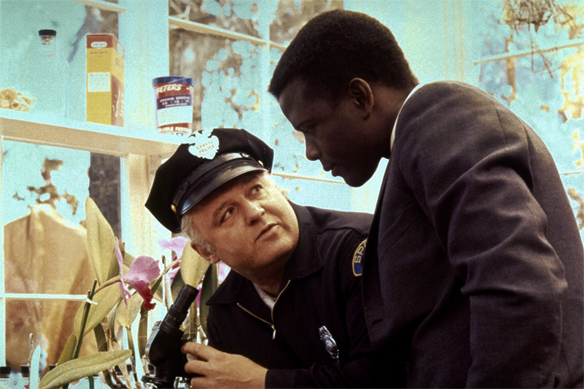 With the current backdrop of highly questionable police shootings across the US in recent months it would seem fitting that this entry into an always predictably alphabetical list would focus on a much rawer form of racism than what we have come to witness in the media recently. Namely a racism that permeated much of the North American continent in times now past, most notably in the former Confederate South, where it just so happens our entry’s story is set. The world would appear to have moved an impressive distance from such an era when open racism was rampant and local discrimination enthusiastically legalised with segregation laws. But perhaps we as a people, or precisely America as a nation, hasn’t come quite far enough in these uncertain, often tumultuous times when dealing with the issue of race in a 21st century United States.
With the current backdrop of highly questionable police shootings across the US in recent months it would seem fitting that this entry into an always predictably alphabetical list would focus on a much rawer form of racism than what we have come to witness in the media recently. Namely a racism that permeated much of the North American continent in times now past, most notably in the former Confederate South, where it just so happens our entry’s story is set. The world would appear to have moved an impressive distance from such an era when open racism was rampant and local discrimination enthusiastically legalised with segregation laws. But perhaps we as a people, or precisely America as a nation, hasn’t come quite far enough in these uncertain, often tumultuous times when dealing with the issue of race in a 21st century United States.
In the Heat of the Night is the seminal masterpiece on race in 60’s America. Its release brought critics and fellow filmmakers together, united in their praise of director Norman Jewison’s work, brought to life brilliantly by black actor Sidney Poitier, a poster child for the African-American civil rights movement. The impact it would go on to have as the perfectly preserved cinematic time capsule of its generation would grow into a highly respected legacy where the themes of race, identity and love appear more relevant now than upon original release. Poitier plays one Virgil Tibbs a New York police detective who whilst waiting for a train to take him back to his utopian life in the North is arrested by a bumbling local sheriff’s deputy and thrown into jail. As opposed to angrily protesting his illegal detention Tibbs simply waits his situation out until he is confronted by the local sheriff, Gillespie (Rod Steiger). However as the sheriff quickly learns of the true identity of his new prisoner he quickly apologises and attempts to convince Tibbs to stay in the town for a few extra days to help them solve the mysterious murder of a high-profile local businessman.
As narratives go for 60’s American cinema there is nothing uniquely special about the execution of Night’s plot. Nowhere to be seen are the recent installations of plot twists featured at the end of modern detective capers or the inclusion of otherworldly spirits in dark thrillers that prompt a deus ex machina ending. This is a gritty, simplistic detective story where the clues in the case are unraveled in a slow and well-paced manner. Tibbs goes through each shred of evidence with meticulous detail, often to the irritation of the local police force, and uncovers the next vital new step towards finding the culprit. What sets the film apart from the often overflowing trough of unoriginal and frankly boring detective dramas is the world and time in which the film was made. Tibbs has to constantly prove to his new partner, Sheriff Gillespie, how his scientific analysis of the case will help prove his theories about many of the town’s inhabitants. His knowledge and reputation eventually precedes him throughout the town, sometimes resulting in a violent chase by a group of white youths or the occasional slap from the 60’s answer to a plantation slave owner.
Night offers a relatively honest look at a backward town at the ass-end of the Mississippi river, struggling to survive the continuous changes that beset the nation in the middle of the decade onwards. The residents and local police force in the area seem more at war with themselves than they do with outsiders and yet it is their very xenophobia that makes the film so interesting to watch. There is a gravity to every scene where Tibbs has to tirelessly prove with each passing character that he is a detective first and a black man second. The daily challenge he has in simply just putting up with the yokels taunts and presumptions about “his people” are as difficult to watch as they are to believe in today’s society and yet there is a deep level of unfairness that permeates the film. Virgil eventually solves the case in a climatic outcome but after his job is done and his train arrives he is only given a heartfelt thank you from the now changed sheriff. No glory for Mr Tibbs, oh no sir; a man of colour could never be made the hero. I think the biggest impact In the Heat of the Night had on its audience was that it decided that the hero would be black, and that he’d be a damned good one, who would live at the end too.

